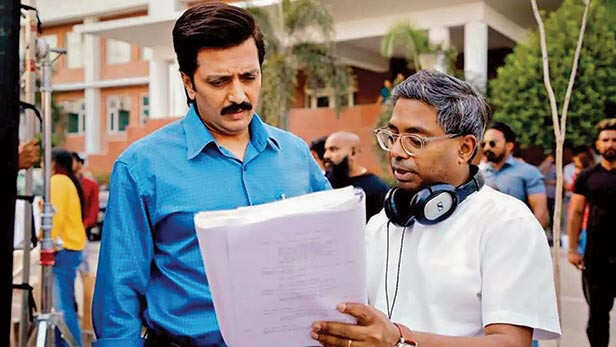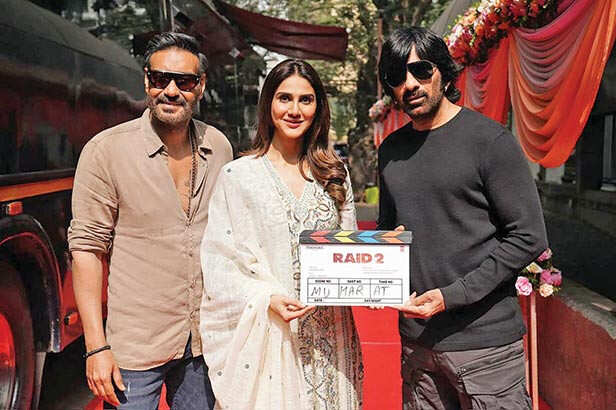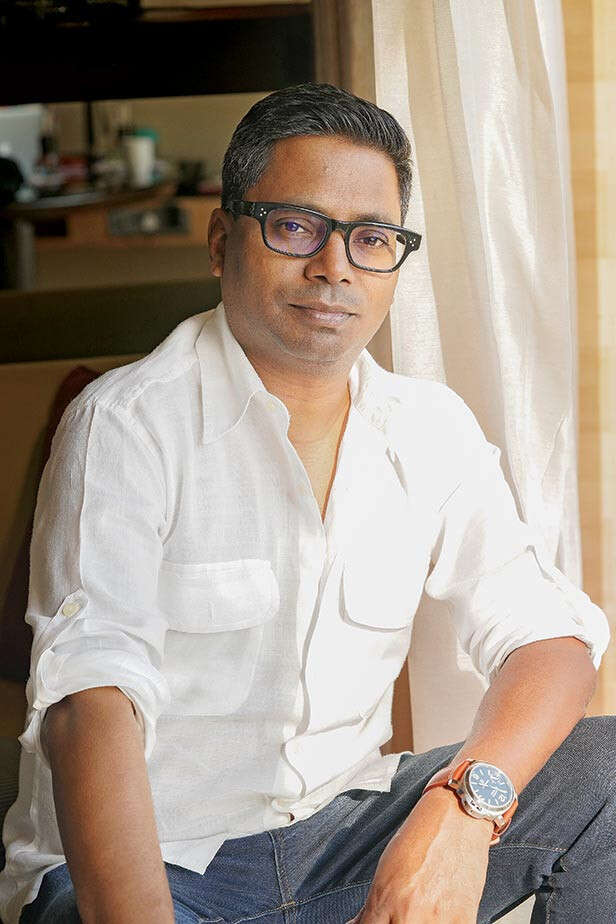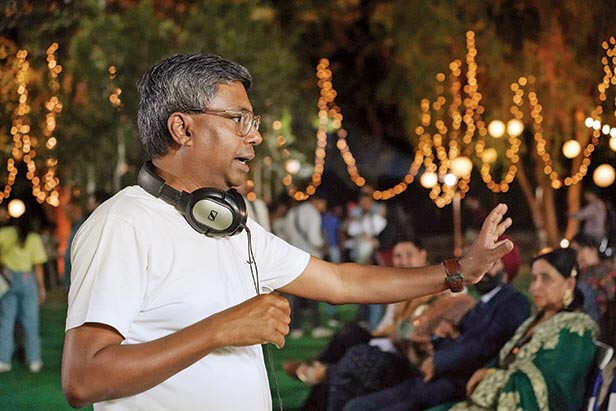EXCLUSIVE: “South filmmakers remade my films,” says Rajkumar Gupta

EXCLUSIVE: “South filmmakers remade my films,” says Rajkumar Gupta
[ad_1]

How did you zero in on the idea of making a show on Big Pharma?
Ronnie (Screwvala, producer) and I have worked together on a couple of films. We made No One Killed Jessica and Ghanchakkar together. We’d been thinking of doing something together once again and while we were chatting, he came up with the idea of doing something on pharma. I was also reading stuff on that subject for a couple of weeks and I thought it would be a nice idea to explore. That’s where the germ of making a series on the pharma world came from. Then we went into research and the first bunch of ideas that came to mind was to do something which one has been hearing or one has been seeing in the medical world. There on, my team of writers and I managed to create the concept of Pill from that germ of
an idea.
Are you enjoying the longer form of storytelling?
This is my first attempt at it, so of course it has been quite challenging. The language of feature films is different from the language of web shows. Of course, as a filmmaker, you get to learn from every attempt at storytelling. You learn a lot of things along the way. While making Pill, I learnt a totally new grammar of filmmaking, one that I could only explore in the longer format. This is a different kind of filmmaking grammar.

Were you consciously looking for an opportunity to try your hand at the longer format of storytelling?
No, I had been toying with the idea of trying the longer format for a while now. Once the opportunity came, I was approached by a few OTT platforms to develop ideas but honestly, I didn’t have a story to tell. Also I was too busy writing and directing my film projects. That’s why I took time to make my first series. There was no subject that I thought would benefit from me telling the story. But when the subject of Pill came into my mind, I thought there was something in this story I wanted to tell. And that’s how I thought I should tell this story.
What excites you about a subject? When do you decide this is worth spending my time and money on?
I can form a narrative in and around a subject. This narrative should be engaging, entertaining and also thought-provoking. It should also be able to give the audience some introspection along the way. Entertainment should also be thought-provoking.

No One Killed Jessica, India’s Most Wanted and now Pill. You tend to naturally gravitate towards investigative thrillers.
I think if you look at my filmography, there are dramas, thrillers and films from many genres and subgenres. Aamir, my first film, was different. No One Killed Jessica again was a dramatic thriller, then Ghanchakkar was completely different. It took no direct inspiration from real life, it was a dark comedy. Even Raid had drama, humour and thrills. I go by what I feel in terms of the story that I want to tell. I don’t pick a subject simply because it is inspiring. It has to have the potential to be engaging and entertaining, as well. I look at subjects from the merit in their story, not just what comes to my mind naturally. If I just select subjects based on instincts, I guess I would end up restricting myself as a filmmaker.
From Aamir and No One Killed Jessica, which were made over a decade ago, how have you seen the landscape of filmmaking change?
When I made those films, they were unique and led by female protagonists, a rarity at the time. Now, with various platforms, you can explore different genres and subjects. The key constant has always been telling a good story.
Usually, Hindi filmmakers look to South films for inspiration, but you’re one of the few Hindi filmmakers whose films have been remade in the South. How do you feel about that?
Yes, South filmmakers remade my films. Aamir was remade as Aal in Tamil, Raid was remade as Mr Bachchan in Telugu. I’m happy that stories I found compelling have also connected with filmmakers and audiences from other languages. Having your films remade for a diverse section of audience is a validation of sorts of good storytelling.

Do you think the secret to your success is the time you dedicate to writing?
Absolutely. Spending time with the script is crucial. Genuine writers need to immerse themselves in their stories, revising drafts until it feels right. The first draft is rarely perfect; it’s a process of continuous improvement. I have sometimes reached the 10th draft of a story and realised I am 90 percent there. But at times, I’ve felt it’s not good enough. It’s important for a writer to finish their project and then leave it, go away, distance yourself from the draft for sometime and do something else. Then, after you’re out of the zone, comeback and revisit what you’ve written and you will find all-new and all-important perspectives. When you revisit, you have to ask yourself, is this script reading like I had imagined it would.
Do young writers nowadays rush through their work?
Serious writers understand the importance of taking time with their scripts. Each draft should be better than the last, and it’s vital to detach and reassess your work. That’s been my process. I have never rushed to start shooting a script just because the second or third draft has been satisfactory. Every script or screenplay needs a certain time to become better. New writers should inculcate a level of patience to see if their ideas and thoughts pan out in the long run.
You have a knack for spotting and nurturing young talent. Amar Kaushik, who’s become a household name with Stree 2 and Bhediya, made an acclaimed short film Abba, back in 2017. How do you spot promising new storytellers?
I am a creative person, I produce films but I am a writer-director first. I try to provide the best guidance to my assistants, giving them the freedom to participate in the creative process. Many have gone on to direct their own films, and I feel blessed to have played a part in their journeys. When Amar had first come to me with the script of Abba, my first reaction was, ‘Please go ahead and make this film’. I always try to get my associates and assistants to become a part of the scripting process and give feedback to my own writing as well. Nurturing new talent is important.
What’s next? You have reunited with Ajay Devgn for Raid 2.
Yes, I’m currently finalising the edit of Raid 2, which is slated to release in February 2025. It’s exciting to reunite with Ajay and Riteish Deshmukh. We’ll discuss more as we get closer to the release.
Should we expect more long-form storytelling from you? You have a talent for it.
Thank you. I need to find a story that inspires me, so let’s see what my next project will be.
[ad_2]




